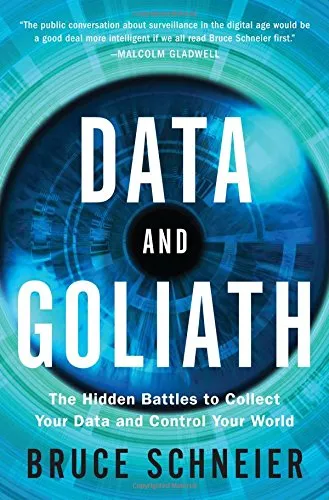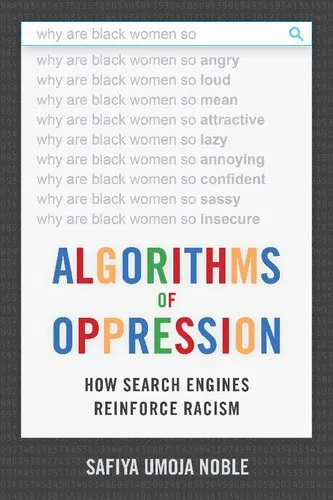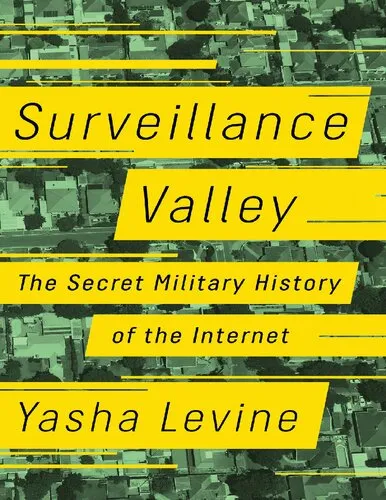The future of foreign intelligence : privacy and surveillance in a digital age
3.7
Reviews from our users

You Can Ask your questions from this book's AI after Login
Each download or ask from book AI costs 2 points. To earn more free points, please visit the Points Guide Page and complete some valuable actions.Related Refrences:
Persian Summary
Welcome to a comprehensive exploration of the intricate interplay between privacy and national security in the digital age. In "The Future of Foreign Intelligence: Privacy and Surveillance in a Digital Age," Laura K. Donohue delves into the legal, ethical, and technological challenges that redefine how nations conduct surveillance, balance civil liberties, and ensure security.
Detailed Summary of the Book
In recent years, technological advancements have dramatically transformed the landscape of national security and intelligence gathering. Laura K. Donohue's influential work sheds light on these changes by analyzing their implications for foreign intelligence operations and privacy rights. The book provides a historical perspective, tracing the evolution of surveillance practices alongside the domestic and international legal frameworks that govern them.
Donohue meticulously examines the tension between national security imperatives and the fundamental right to privacy. She discusses how the digital age has expanded the reach of surveillance tools and the consequent need for robust accountability mechanisms. The book provides a critical evaluation of existing and emerging legal frameworks, such as the Foreign Intelligence Surveillance Act (FISA), and prompts readers to consider the effectiveness and ethical dimensions of bulk data collection, signal intelligence, and cyber operations.
By exploring case studies and landmark court decisions, Donohue outlines the challenges faced by policymakers and judicial systems in addressing the complexity of digital surveillance. The book closes by envisioning a future where technological capabilities are harnessed responsibly, safeguarding privacy while fortifying national security.
Key Takeaways
- Surveillance has crossed traditional boundaries, with digital tools providing unprecedented access to personal data.
- The balance between national security and individual privacy often leans towards security, presenting significant ethical challenges.
- Legal frameworks struggle to keep pace with technological advancements, necessitating continuous review and adaptation.
- New forms of oversight could enhance accountability and transparency in intelligence operations.
- Understanding the global implications of national surveillance practices is crucial for effective international cooperation.
Famous Quotes from the Book
“In the digital era, the mechanisms of state surveillance have evolved to a point where they permeate everyday life, challenging the pillars of privacy and democratic governance.”
“While the tools of surveillance have grown more sophisticated, so too must the legal and ethical frameworks that govern them.”
“Privacy does not obstruct security; instead, it strengthens the very foundations of a free and democratic society.”
Why This Book Matters
"The Future of Foreign Intelligence" is an essential read for policymakers, legal scholars, and citizens alike. As digital surveillance becomes more pervasive, understanding its implications is crucial for safeguarding civil liberties and fostering democratic principles. Laura K. Donohue's book provides a thorough jurisprudential and ethical analysis that challenges us to rethink the relationship between technology, security, and freedom.
This work not only elucidates current dilemmas but also advocates for a balanced approach to intelligence operations — one that respects individual rights while addressing national threats. It is a pivotal resource in the ongoing dialogue about the future of privacy and surveillance, guiding readers towards informed, constructive engagement with one of the most pressing issues of our time.
Through thoughtful critique and innovative perspectives, Donohue equips us with the knowledge to navigate the complexities of a rapidly evolving digital landscape. Her book stands out as a vital tool for understanding the stakes at hand and the potential pathways forward.
Free Direct Download
You Can Download this book after Login
Accessing books through legal platforms and public libraries not only supports the rights of authors and publishers but also contributes to the sustainability of reading culture. Before downloading, please take a moment to consider these options.
Find this book on other platforms:
WorldCat helps you find books in libraries worldwide.
See ratings, reviews, and discussions on Goodreads.
Find and buy rare or used books on AbeBooks.










